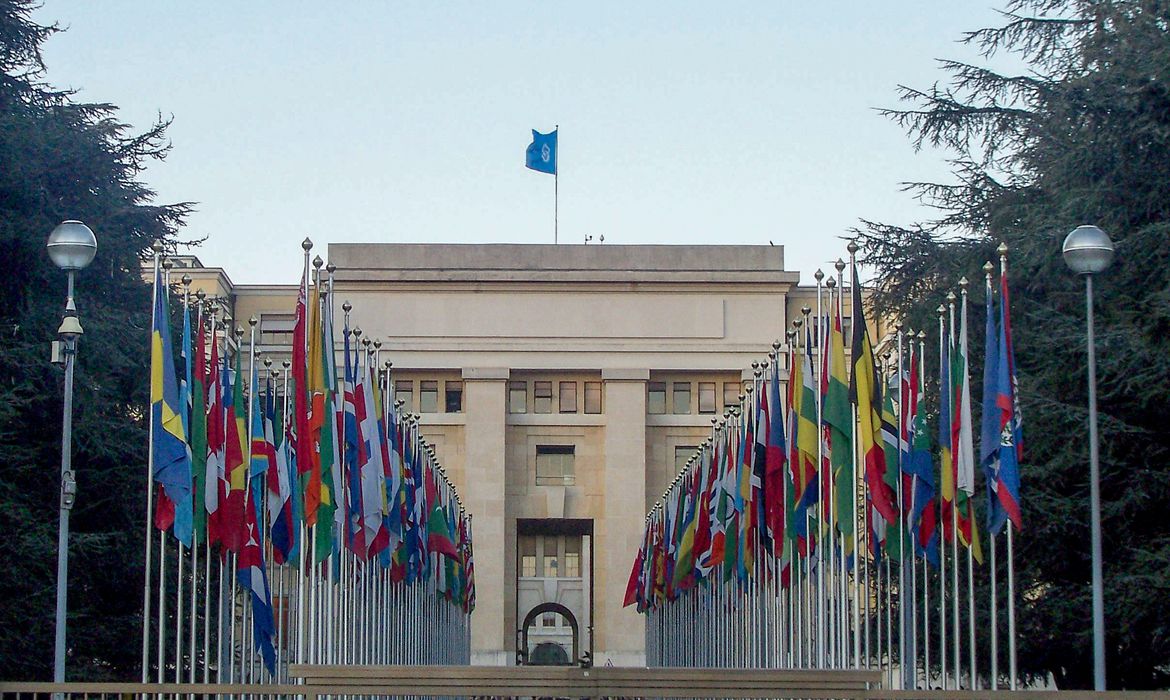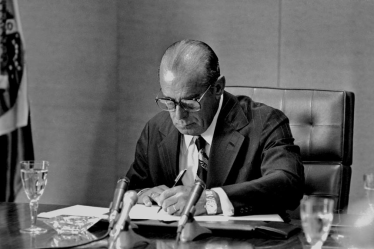
The UN General Assembly approved by consensus, this Thursday (21), a resolution calling for the creation of international standards to regulate the explosion of artificial intelligence (AI), which arouses both enthusiasm and concern.
The text, prepared by the United States and co-sponsored by dozens of countries, was approved by consensus after several months of negotiations.
The resolution, which excludes military AI, highlights “the need to establish standards that ensure that artificial intelligence systems are safe and reliable.”
The objective is to “promote, rather than hinder, digital transformation and equitable access to the benefits of these systems”, in order to achieve the UN Sustainable Development goals, which aim to guarantee a better future for all humanity by 2030.
“It is a historic step towards establishing clear international standards for AI and fostering safe and reliable AI systems”, reacted American Vice President, Kamala Harris.
“It must be adopted and developed in a way that protects everyone from possible harm and ensures that everyone can enjoy its benefits,” said the vice president in a statement, in which she called for addressing “from catastrophic risks to all humanity to harm suffered by individuals and communities, as well as losses”.
Threats and opportunities
The emergence, at the end of 2022, of ChatGPT, from the Californian company OpenAI, capable of writing dissertations, poems or making translations in seconds, gives a new dimension to attempts to regulate AI.
This system revealed the enormous potential of AI, but also exposed its risks to democracy in a year in which half the planet will elect its leaders, or by disseminating false photographs or videos that can manipulate public opinion and ruin people's lives. .
Therefore, the text recognizes that, without “safeguards”, AI runs the risk of undermining human rights, reinforcing prejudice and discrimination, and putting the protection of personal data at risk.
In this sense, it asks all Member States and other interested parties to “refrain from or stop using artificial intelligence systems that cannot be used in a manner that respects human rights or that present excessive risks to the exercise of human rights”.
Development benefits
The resolution focuses primarily on the potential development benefits of AI, and claims to be “committed to bridging the digital divide” between and within countries.
For Morocco's ambassador, Omar Hilalen, it is a “stepping stone for existing and future multilateral initiatives on digital cooperation”, although “it is not an end in itself, but the beginning of our collective journey” towards “a development sustainable approach that leaves no one behind.”
UN Secretary-General António Guterres, who has made regulating AI one of his priorities, has called for the creation of a UN entity along the lines of the International Atomic Energy Agency (IAEA).
Typically highlighting the threats posed by misinformation and prejudice, last week, Guterres warned of the “biases” of technologies designed mainly by men and that “ignore” the needs and rights of women.
“Male-dominated algorithms could literally program inequality into activities like urban planning, credit qualifications or medical imaging for years,” he warned.
“I don’t think the United States wants to let Guterres lead this very delicate dialogue, so it is intervening to shape the debate,” said Richard Gowan, alluding to a “race” led by several UN member states, including, United States, China and South Korea, to be at the forefront of this social issue.
In October, the White House had already released standards and principles aimed at ensuring that the United States “leads the way” in regulating AI, and American President Joe Biden insisted on the need to “govern” these technologies.
On March 13, the European Parliament approved the first law in the world to regulate the use of artificial intelligence in the European Union.
© Agence France-Presse


